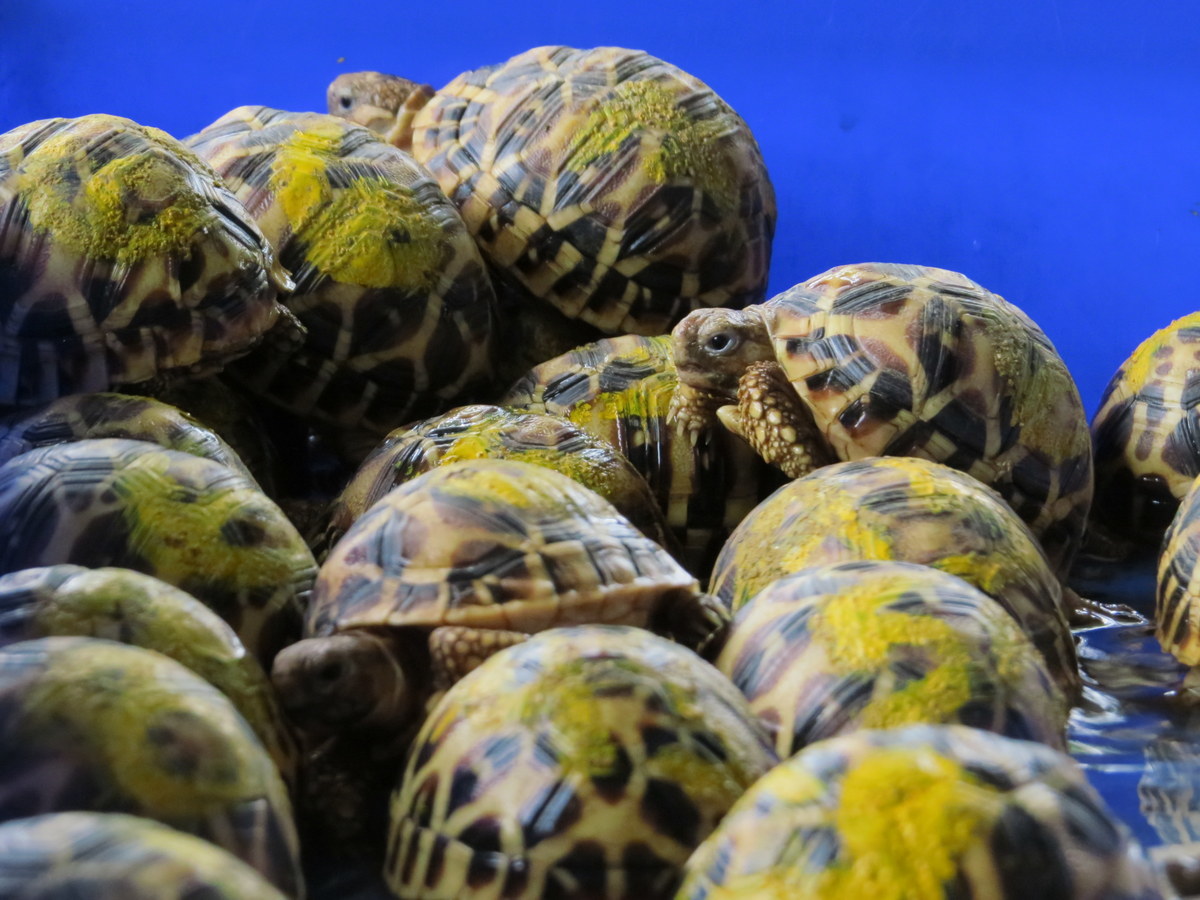Disrupting Wildlife Cybercrime – Global
Wildlife crime is a matter of supply and demandifaw volunteers combatting wildlife cybercrime
ifaw volunteers combatting wildlife cybercrime

IFAW’s Cyber Spotter Program employs the critical force of citizen scientists to combat illegal wildlife trade. As our “eyes across the web,” Cyber Spotters undergo training to identify suspicious wildlife products offered on the internet and report content directly to IFAW. IFAW works with the online platforms to flag and remove this content. In my role, I review data from Cyber Spotters before sharing it with the companies.
As I click through the data entries, I look at hundreds of birds and reptiles in cages, many of them critically endangered like the yellow-crested cockatoo or the dwarf gecko. An image comes to mind about a recent seizure of 64 live parrots stuffed in plastic bottles in Indonesia, 10 parrots were found dead in those bottles. Many people think that the animals they buy are bred in Europe and therefore not taken from the wild. Unfortunately, that is often not the case. In captive breeding, animals are regularly added from the wild to maintain a healthy population. Trafficking wildlife causes huge animal suffering. Many animals die when transported to the final destination. Some online listings show wild animals being kept in poor conditions that do not meet their welfare needs.
Shutting down wildlife cybercrime
I trained a group of volunteers to monitor online platforms in Germany on which wildlife specimens are being traded. Our aim is to support the companies in the implementation of their wildlife friendly policies, searching for listings with protected species, in particular birds, reptiles and elephant ivory. On a weekly basis over the course of six weeks, I shared data with online platforms to take action and in most cases they remove the listings. Our Cyber Spotters found more than 800 listings, including critically endangered Fiji iguanas, endangered grey parrots, as well as tortoise shell and ivory products. This work makes it harder to sell protected species online and provides these platforms with valuable information about what techniques sellers use to avoid detection.
Certain permits proving legal obtainment are required to trade protected species. Reviewing listings found by our volunteers, it is often unclear where animals come from and whether they are captive bred or wild caught. Some listings mention “papers available,” while others do not. None of them show proof of legality in the form of pictures of permits. Since there is no national legislation to oblige the seller to proactively prove the legality of the live animal or product and include this in the listing, it is difficult for consumers to differentiate between legal and illegal offers. When in doubt, do not buy an animal that might be trafficked.
What can you do to prevent wildlife trade?
If you come across a listing offering a wild animal or product of a protected species without any clear references to legality, you can report this to the online platform. Most platforms have a reporting function. Meanwhile, we will continue working with online platforms to shut down online trade routes for endangered species, helping to keep animals like elephants, blue-throated Macaws and Williams' Dwarf Geckos offline and in the wild.
-Anna Bahraynian-Thayenthal, IFAW Project Manager, Wildlife Cybercrime
Related content
every problem has a solution, every solution needs support.
The problems we face are urgent, complicated, and resistant to change. Real solutions demand creativity, hard work, and involvement from people like you.